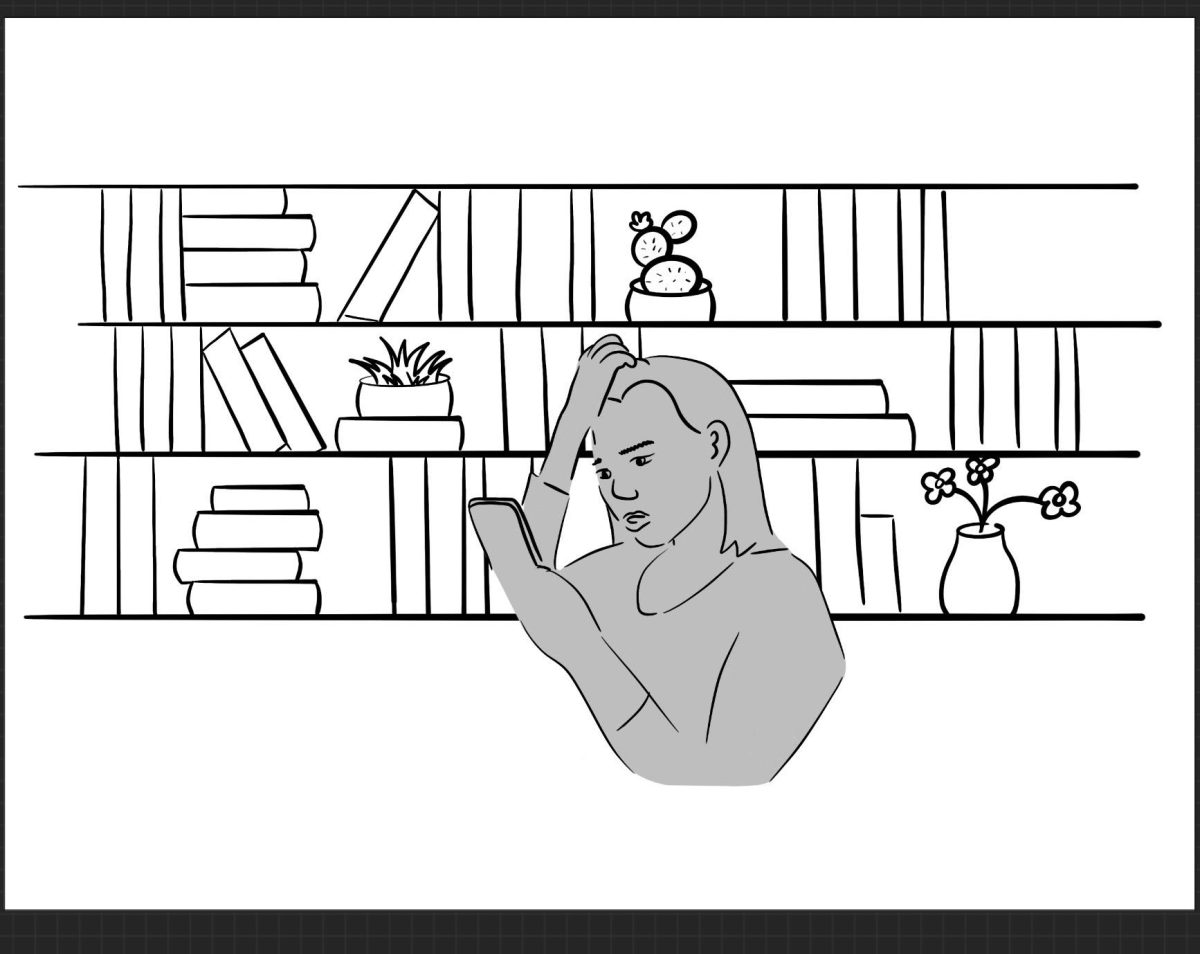Like many fellow Goodreads users, at the beginning of this new year I set a reading goal for myself regarding the amount of books I wanted to read in the new year. I spent my winter break tearing through books. While I fully enjoyed these texts and the opportunity to return to reading independently, I cannot deny that I also enjoyed watching the percentage bar on the app jump forward with each read, informing me how ahead I was on my reading goal. As I planned my next books, I realized that hitting this yearly total would come at the cost of reading longer works; too much time spent on one book would set me behind on my reading schedule. I was at a crossroads between reading for my own enjoyment and reading to fulfill this promise I had made.
I began to wonder, who I was maintaining this goal for? For myself, to push myself to read more? For my Goodreads follower base (in the single digits) that I feared disappointing? For my pride and own fear of failure if I failed to par the course of my reading trajectory? Ruminating on these questions prompted me to look at how we, in a digitalized age, engage in this analog activity.
Gone are the days of simply reading for pleasure. Reading today has become performative in nature.
Many would view reading as a deeply intimate activity. Reading is personal and private. While reading allows us to learn and connect with others, this occurs independently and on our own timeline as readers, as we can engage in this process whenever we choose to pick up a book. Today, reading has shifted from the private to the public sector. Consumerism and technology has created a global community of readers boasting the hundreds of books they read a year online and posting images of perfectly curated book shelves. To me, these images are akin to Gatsby’s collection of uncut books sitting unread and untouched in his library. There is a desire not to read for personal gain, but to be publicly recognized as someone who is well-read. In an age of instant gratification and entertainment brought by endless streaming services and social media platforms, reading is seen as having a higher moral value, requiring the intention and dedication to take the time to sit down with a book. It is advantageous to perform the role of an avid reader.
I am not trying to dissuade others from reading. Reading allows us to not only enrich, but actually extend our lives, given a 20 percent reduction in mortality found in those who regularly read books. Rather, I am questioning the ways in which our mentality surrounding reading has shifted. Apps such as Goodreads have changed reading from a way to connect with others to a desire to compete with others. Instead of sharing the joys of their favorite books, readers are sharing the stacks of books they have amassed over the years. If we are reading under the guise of an hourglass in an effort to hit a target number, it seems difficult to imagine we are truly reaping all of the intellectual and physical benefits of reading.
Reading with an objective of competition, with ourselves or others online, has closed us off to the joy of reading. While it is possible to have truly read a large quantity of books in a given time, I question whether these books are being actively read and appreciated. There is a desire to read more and more, to read for the sake of it and the ability to boast of exceeding one’s predicted goal. These yearly book totals and shelves stuffed with aesthetically pleasing covers are no different from Gatsby’s sealed shelves. Reading thus shifts from an opportunity for learning and reflection into a performative desire to show a supposed intellectual superiority over others. It is not the sheer number of books, but rather taking the time to absorb and make sense of a writer’s work that makes a person well-read.
2024 can be a year of making a goal not in terms of the quantity of books, but rather in quality time spent reading. Let’s read fervently because we cannot pry our hands from a captivating novel, rather than a frantic desire to hit our reading goals early. This new year can be one of reading for personal gain, not in an attempt to perform for others.

















Kat • Feb 2, 2024 at 1:37 pm
Such an interesting take! Eloquent and inimitable as always.